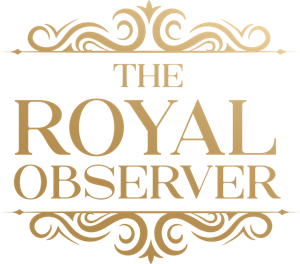Royal Wagers: Exploring Britain's Most Famous Gambling Monarchs

Gambling is one of the oldest and most popular activities in human history. It is only natural that the British monarchy has had many participants in their long reign. Throughout history, the monarchy has stood as a symbol of power and prestige as well as a reflection of social trends. One interesting aspect of these great families is the gambling habit the British monarchs had. From horse racing to card games, many types of gambling were a common pastime for several royals. This influenced both their courts and the broader society as a whole.
Here we will take a look at the most famous British gambling monarchs and their stories. Additionally, we will take their legacies and history through modern perspectives and see their impact even today.
The History Of Britain’s Gambling Monarchs
As already mentioned gambling has been a long-standing activity in the royal circles of Britain. It was most popular among the aristocracy and the monarchy from the medieval period and onwards. Gambling served as great entertainment and was a means of socializing with others of great wealth and status.
Within royal circles, gambling was associated with sophisticated individuals as a pastime activity. It was an activity that brought together nobility and helped build alliances as well as rivalries. As you can guess among the royals the stakes were often high to reflect the significant wealth of each participant. Gambling was utilized by the monarch to assert their dominance through the display of skill involved. It was a much different space as services such as top New Zealand casinos or casinos didn't yet exist. This led the monarchs to often host these gambling events in their estates. Those who would win would demonstrate their strategic acumen and at times engage in displays of magnanimity.
Ultimately, gambling served as a way for monarchs to display their skills and seize higher positions based on them. However, it also had a profound impact on the social attitudes towards gambling. With the monarchy's attention on gambling, it quickly became a trend that was fashionable and desirable by all. The emerging middle classes alongside royal endorsement normalized and popularized the activity. This led to widespread acceptance and participation in all gambling activities.
All of this also had many economic impacts on the country as many high-stakes games were played. These high-stakes games always involved large sums of money which led to many monarchs having gambling debts. This put a strain on royal finances and required direct intervention to manage the monarchy’s expenses. Gambling through its immense popularity thanks to the monarchs also spread quickly. With many gambling establishments and betting houses being opened. This boom in the gambling industry created many new businesses and employment opportunities for citizens. In the end, it ended in a positive sentiment as the economic situation improved.
Most Famous Gambling Monarchs
Of all of the monarchs that participated in gambling three stand out above all else. The first is King Charles II who reigned from 1660 to 1685, a man with a passion for gambling. He frequently indulges in his favorite pastime through card games and dice. Naturally, he always played with high stakes as he was characterized by a lively and hedonistic atmosphere. His court reflected this as it was known to often host gambling activities as an accepted practice.
The next monarch known for her love of gambling was Queen Anne, ruling from 1702 to 1714. Her favorite game was playing cards and participating in gambling activities regularly. This love for gambling was shared with many members of her court as it was a common activity. At this time gambling was seen as a very popular activity within the aristocracy.
Finally, we have King George IV, one of the most notorious gambling monarchs. He reigned from 1820 to 1830, however, even before ascending to the throne he lived an extravagant lifestyle. This was only enhanced with the rise in power which allowed him and his excessive gambling habits to flourish. King George IV quickly accumulated substantial debts from his gambling activities. The result of this was a significant dent in the royal finances which marked an era of Britain.
The Legacy And Modern Perspective
The gambling activities of Britain’s monarchs have left a very distinct legacy. By taking a look at the modern age we can see gambling remains a popular activity in Britain. Through its historical roots, we can see the association of gambling with sophistication and high status even today. As it stands now it is one of the biggest industries not only in the country but the whole world.
With this immense popularity, the public’s attitude towards gambling has significantly evolved, especially in the last decade. What was once an activity designated for nobles is now a widespread hobby aimed at everyone. This shift has reflected the industry's focus on accessibility and its growth. Overall, gambling is in a very good state, especially through its latest and most successful prospect, online casinos.
